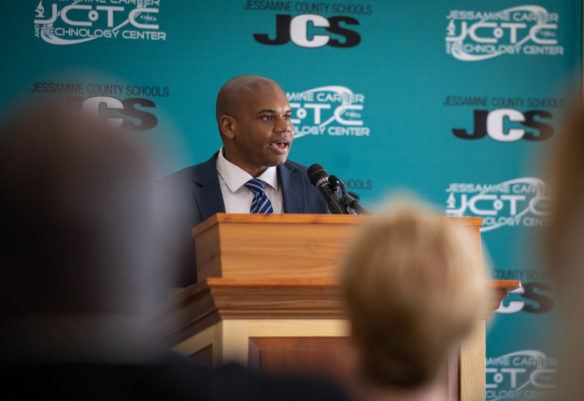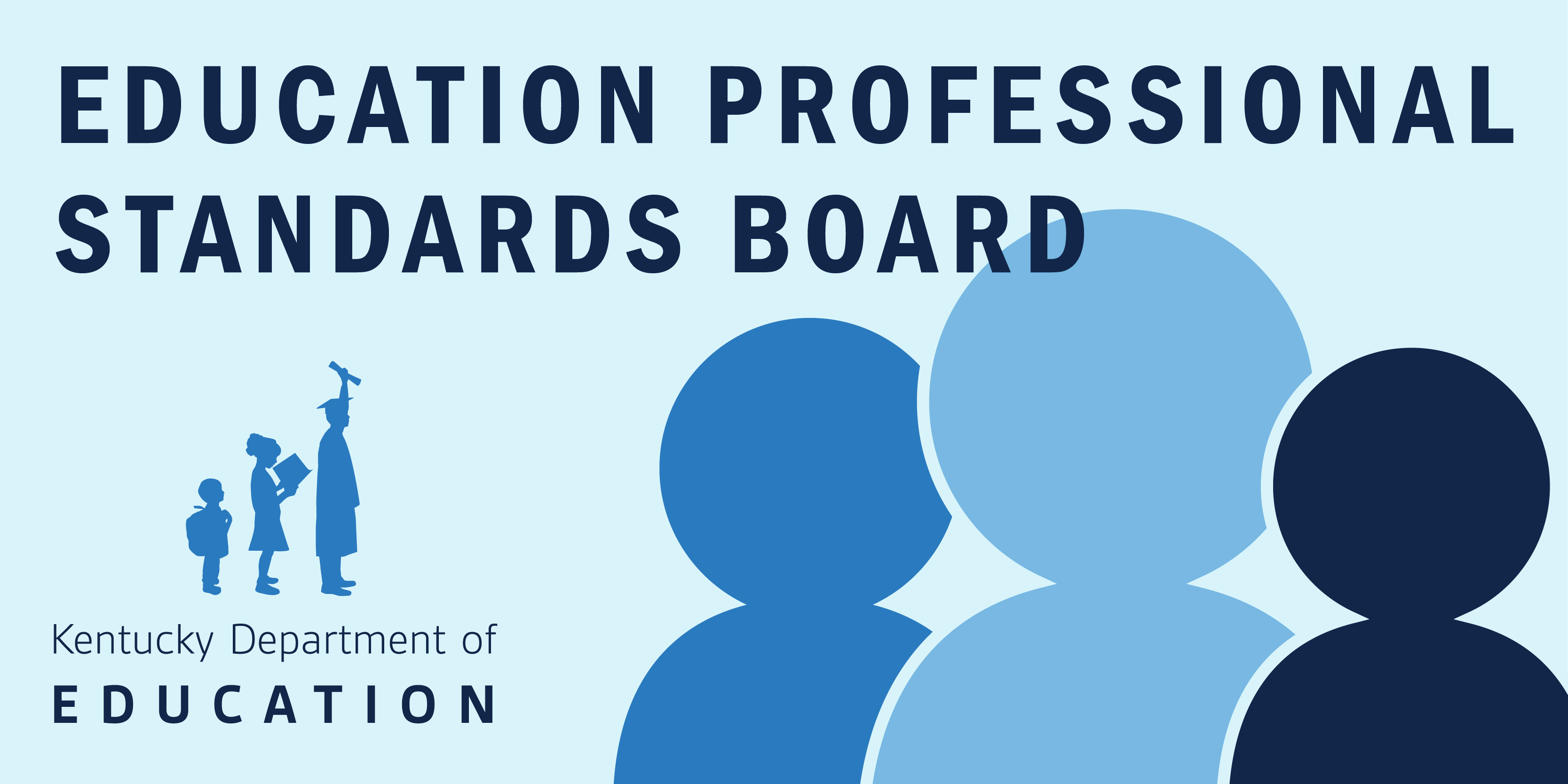
Interim Commissioner Wayne Lewis gives his State of Education in the Commonwealth address at the Jessamine County Career and Technical Center. Lewis said that Kentucky must get better at preparing students for the future and for post-secondary education requirements.
Photo by Bobby Ellis, Aug. 28, 2018
(Frankfort, KY) – Kentucky Department of Education Interim Commissioner Wayne D. Lewis called upon state educators, parents and Kentucky businesses to help students across the Commonwealth prepare for thousands of profitable careers that are open to highly skilled, educated graduates. In his State of Education Address Aug. 28 at the Jessamine Career and Technology Center, Lewis highlighted a study done by the Kentucky Center for Statistics that showed an alarming number of high school graduates are not completing postsecondary credentials within eight years of graduation.
“There were more than 37,000 students who graduated in the Class of 2010. Eight years later, just under 10,000 have achieved an industry certificate, associate degree, bachelor’s degree or higher,” said Lewis. “That is simply unacceptable. There will be more than 400,000 job openings in Kentucky over the next five years, and more than 36 percent of those jobs require some training beyond high school.”
Lewis challenged school leaders to work with students to inform them about careers and wages in Kentucky’s high demand industry sectors, as identified by the Kentucky Workforce Innovation Board.
Earlier this summer, Lewis named two of his top priorities as interim commissioner as increasing the percentage of high school students completing career and technical education pathways and earning industry-recognized credentials in high-demand sectors; and increasing the number and percentage of high school students successfully completing early postsecondary opportunities, such as dual credit and Advanced Placement. During his address, he urged school leaders to continue to develop programs that will help meet these goals, including meeting the target goal of college and career readiness. In 2017, the goal was set for 73.5 percent of students to be transition ready upon graduation, however only 65.6 percent of students met that goal.
“College students who completed an early postsecondary opportunity in high school are three times as likely to be on-track to graduate college on time,” said Lewis. “If we are going to increase postsecondary success in this state, then we must encourage more students to take advantage of early opportunities, and through programs like the Dual Credit Scholarship and the Work Ready Kentucky Scholarship, cost is no longer a barrier.”
As part of that effort, Lewis announced in July the What Will You Be, Kentucky? Campaign aimed at increasing awareness about career and technical education (CTE) careers. The campaign spotlights careers in Kentucky’s five high-demand workforce sectors – advanced manufacturing, business/IT, construction trades, healthcare and transportation/logistics – through sharing the education, career training and job experiences of Kentuckians. What Will You Be, Kentucky? is accepting stories from the public to help students in the Commonwealth find their future careers. Stories can be emailed to whatwillyoubeky@education.ky.gov.
During his address, Lewis also spoke about socioeconomic and racial achievement gaps in Kentucky’s public schools.
“In 2017, 52 percent of white students entering kindergarten were ready for school, compared to 47 percent of their African-American classmates, and just 29 percent of their Hispanic classmates,” he said. “From a socioeconomic standpoint, only 40 percent of students who receive free and reduced-price lunches were ready for kindergarten.”
As a way to address this, Lewis says participation in public preschool programs must be increased across the state.
According to K-PREP data, Kentucky has lost ground in 3rd-grade reading and math over the past three years. In 2017, fewer students scored proficient or higher on 3rd grade reading and math tests than in 2014-2015. In 2017, about 50 percent and 48 percent of 3rd graders scored proficient or higher in reading and math respectively.
“We have outlined specific goals for increases in these areas,” Lewis said. “It’s imperative that we make improvements on student outcomes during the next school year.”
Lewis closed his address by saying the conversation on education in Kentucky must shift back to the needs of students and parents.
“For the next year we must have a focused conversation on kids and parents. Tay Reed, a Ballard High School student in Louisville, survived a gunshot wound three years ago. He is now an A and B student being mentored by Louisville community activist Christopher 2X. In today’s culture, whether you live in the West End of Louisville or in an Eastern Kentucky community where opioids and other drugs are rampant, having a high-quality education can be the difference between life and death.”



Leave A Comment